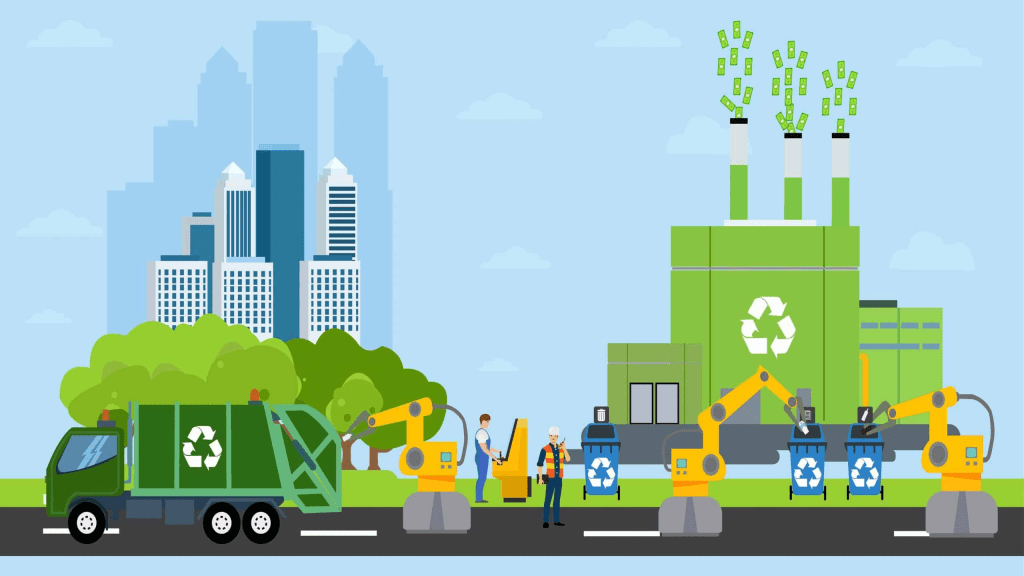The Role Of Garbage Disposal Technology In Waste Management
In the face of escalating environmental challenges, innovative garbage disposal technologies are emerging as beacons of hope. These advancements promise not only to streamline waste management practices but also to significantly reduce the environmental impact of our daily refuse. This exploration delves into the cutting-edge of garbage disposal technology, unveiling how modern innovations are setting the stage for a greener, more sustainable future.

The Evolution of Garbage Disposal
The journey of waste management is a tale of constant evolution, from rudimentary dumping to sophisticated disposal methods designed to minimize ecological footprints.
From Landfills to High-Tech Solutions
Historically reliant on landfills, the waste management sector is undergoing a transformative shift towards integrating more sustainable and technologically advanced disposal methods.
Cutting-Edge Garbage Disposal Technologies
Today’s garbage disposal technologies are a far cry from the simple trash compactors and landfill sites of the past. These modern solutions offer efficient, eco-friendly ways to manage waste.
Advanced Recycling Techniques
Innovative recycling technologies are enabling the conversion of waste into usable materials, drastically reducing the volume of refuse destined for landfills.
Waste-to-Energy Conversion
Waste-to-energy plants are revolutionizing garbage disposal by transforming organic waste into electricity, offering a dual solution to waste and energy challenges.
Biodegradable and Compostable Alternatives
The development of biodegradable and compostable materials is reducing reliance on traditional plastics, leading to a significant decrease in waste generation.
The Role of Smart Technology in Waste Management
Smart technology is playing a pivotal role in optimizing garbage disposal processes, from collection to sorting and beyond.
IoT-Enabled Waste Bins
Internet of Things (IoT) technology is being used to create smart waste bins that can monitor fill levels, optimizing collection routes and frequencies.
AI and Machine Learning in Sorting
Artificial intelligence (AI) and machine learning algorithms are enhancing the efficiency and accuracy of waste sorting, ensuring maximum recyclability.
The Environmental Impact of Modern Garbage Disposal
The shift towards advanced disposal technologies carries profound implications for the environment, promising a reduction in pollution and a move towards sustainability.
Reducing Greenhouse Gas Emissions
By diverting waste from landfills and converting it into energy, modern disposal methods are playing a critical role in reducing greenhouse gas emissions.
Conservation of Natural Resources
Recycling and waste-to-energy technologies contribute to the conservation of natural resources by reusing materials and generating renewable energy.
Challenges and Considerations in Adopting New Disposal Technologies
While the benefits are clear, the adoption of advanced garbage disposal technologies is not without its challenges.
High Implementation Costs
The initial investment required for high-tech disposal solutions can be substantial, posing a barrier to widespread adoption.
Regulatory and Policy Hurdles
Navigating the complex landscape of environmental regulations and policies can be a significant challenge for new disposal technologies.
The Future of Garbage Disposal Technology
As we look to the future, the potential for further innovations in garbage disposal technology is vast, promising even more effective and sustainable waste management solutions.
The Potential of Nanotechnology
Nanotechnology holds promise for enhancing recycling processes and developing more efficient waste-to-energy conversion methods.
The Integration of Circular Economy Principles
The concept of a circular economy, where waste is minimized, and materials are continually reused, is becoming increasingly integrated into disposal technology innovations.
Public Engagement and Education
For these technological advancements to have a lasting impact, public engagement and education are crucial.
Raising Awareness About Waste Reduction
Educating the public about the importance of waste reduction and the role of advanced disposal technologies is essential for fostering a culture of sustainability.
Encouraging Responsible Waste Management
Programs that incentivize recycling and responsible waste disposal can play a significant role in ensuring the success of new garbage disposal technologies.
In conclusion, the landscape of garbage disposal is undergoing a remarkable transformation, driven by technological innovation and a growing recognition of the need for sustainable waste management practices. As these advanced technologies continue to evolve and gain traction, they offer a promising path towards a cleaner, greener planet. The journey towards revolutionizing waste management is complex and fraught with challenges, but the potential rewards for our environment, our societies, and future generations are immense. By embracing these innovations and fostering a global culture of sustainability, we can redefine our relationship with waste and move closer to a sustainable future.